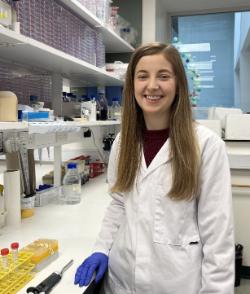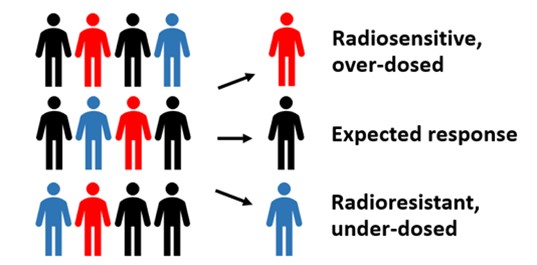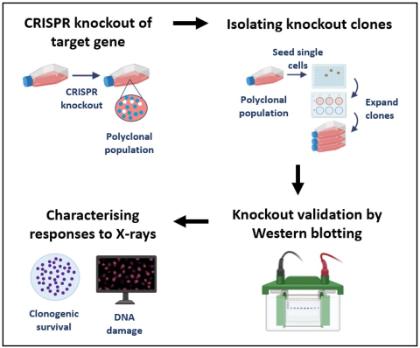Student Corner
Lydia Gardner is a second year PhD student working under the supervision of Dr Stephen McMahon and Dr Karl Butterworth, and her project focuses on exploring how differences in individual genetics can alter sensitivity and outcomes to treatment with radiotherapy.

Individual radiosensitivity is a key driver of the success of radiotherapy treatments: some patients have genetic mutations which make their cancers more sensitive to radiation, and respond well to the treatments, while others have mutations which make the tumour cells more resistant, and therefore harder to treat. By gaining a better understanding of the mechanisms underlying individual radiosensitivity we can allow for more personalised treatments and improved patient outcomes.
One of the mechanisms driving sensitivity to radiotherapy (radiosensitivity) is the ability of cells to repair DNA damage from radiation. DNA repair is often compromised in cancer cells, meaning they are not able to effectively repair the DNA damage inflicted by radation. Radiosensitivity is, in turn, affected by mutations in genes involved DNA repair pathways.

Due to genetic differences between individual people, patients can respond differently to the same radiotherapy treatment, resulting in some patients being over- or under-treated.
By understanding how radiosensitivity is impacted by the disruption of key DNA repair genes we will better be able to predict a patient's response to radiotherapy.

My project aims to measure the impact of mutations in key DNA repair genes on the response to radiation.
To achieve this, I am using the gene editing technique CRISPR-Cas9 to create a range of cells that are deficient in DNA repair, which will allow studying the roles of these individual genes in individual radiosensitivity.
Many cancers have alterations in multiple DNA repair genes and so it is important to consider interactions between these genes and how they affect sensitivity to radiation. We will address this by creating cells deficient in multiple DNA repair genes and studying the impact of these mutations on radiosensitivity.
The workflow used to generate the DNA repair deficient cell lines and
measure the impact of these genetic mutations on radiosensitivity.
Overall, these results will provide valuable knowledge to inform the development of improved models of radiosensitivity, to enable more personalised radiotherapy treatments, leading to better patient outcomes.
